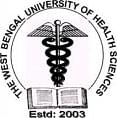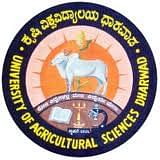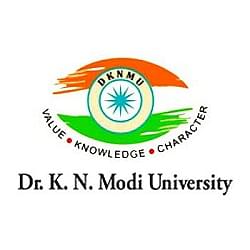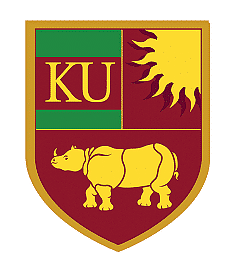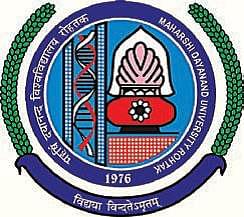Introduction about Ph. D in Biological Science
A Ph.D. in Biological Science from top college is an advanced academic degree program that
offers in-depth exploration and research opportunities in various aspects of
the biological sciences. This interdisciplinary field encompasses the study of
living organisms, their structure, function, behaviour, evolution, and
interactions with their environment. A Ph.D. in Biological Science prepares
students for careers in research, academia, industry, healthcare, and
environmental conservation.
Ph.D. programs in Biological Science are highly flexible and
customizable, allowing students to pursue specialized research interests within
subfields such as molecular biology, genetics, cell biology, microbiology,
ecology, physiology, and evolutionary biology. Students engage in rigorous
coursework, laboratory research, and scholarly activities aimed at advancing
scientific knowledge and contributing to the understanding of complex
biological phenomena.
Throughout the program, Ph.D. students work closely with faculty mentors
and research teams to design and conduct original research projects, publish
scholarly articles, and present their findings at scientific conferences.
Research topics within Ph.D. programs in Biological Science may encompass a
wide range of areas, including:
§ Molecular Biology
and Genetics: Investigating the molecular mechanisms underlying genetic inheritance,
gene expression, DNA replication, and protein synthesis, with applications in
biotechnology, medicine, and agriculture.
§ Cell Biology and
Physiology: Studying the structure and function of cells, organelles, and cellular
processes, such as cell signaling, membrane transport, and cell cycle
regulation, with implications for understanding human health and disease.
§ Microbiology and
Immunology: Exploring the diversity, ecology, and pathogenicity of microorganisms,
including bacteria, viruses, fungi, and parasites, as well as the immune
response to microbial infections and vaccination strategies.
§ Ecology and
Environmental Biology: Analyzing interactions between organisms and
their environment, including population dynamics, community ecology, ecosystem
processes, and conservation biology, to address global environmental
challenges.
§ Evolutionary
Biology and Comparative Genomics: Investigating the mechanisms of
evolutionary change, speciation, adaptation, and phylogenetics, using
comparative genomic analyses and experimental approaches to understand
biodiversity and evolutionary relationships.
§ Graduates
of Ph.D. programs in Biological Science pursue diverse career paths, including
academic positions in universities, research positions in government agencies
or industry, leadership roles in biotechnology or pharmaceutical companies, and
conservation positions in environmental organizations. Their expertise and
contributions play a vital role in advancing scientific knowledge, solving
complex biological problems, and addressing pressing societal challenges
related to human health, environmental sustainability, and biodiversity
conservation.
What is admission process for Ph. D in Biological
Science ?
The admission process 2024 for Ph.D. in Biological Science can vary depending on the institution and
program requirements. However, here are the typical steps involved in the
admission process:
Research
Programs and Institutions: Begin by researching universities and
institutions offering Ph.D. programs in Biological Science. Consider factors
such as program reputation, faculty expertise, research focus areas, and
resources available for doctoral students.
Review
Admission Requirements: Carefully review the admission requirements for
each program you're interested in. Common requirements may include:
A bachelor's or master's degree in Biological Science, Biochemistry,
Molecular Biology, Genetics, Microbiology, Ecology, or a related field from an
accredited institution.
Minimum GPA requirements for previous undergraduate or graduate
coursework (typically around 3.0 on a 4.0 scale).
Submission of standardized test scores (such as the GRE) may be required
by some programs, although this requirement is becoming less common.
Prerequisite coursework in relevant subjects such as biology, chemistry,
mathematics, and physics.
Prepare
Application Materials: Gather all required application materials, which
typically include:
Completed application form (submitted online or by mail).
Official transcripts from all previous colleges and universities
attended.
Letters of recommendation (usually from academic or professional
references who can speak to your qualifications and potential for success in
doctoral studies).
Statement of purpose or personal statement outlining your research
interests, academic background, career goals, and reasons for pursuing a Ph.D.
in Biological Science.
Curriculum vitae (CV) or resume highlighting your academic and research
achievements.
Writing samples or research papers (if applicable).
Submit
Applications: Complete and submit your applications by the specified deadlines. Pay
close attention to any additional requirements or supplementary materials
requested by each program.
Interviews
(if applicable): Some programs may require interviews as part of
the admission process. If selected, be prepared to discuss your research
interests, academic background, and career aspirations with faculty members or
admissions committee members.
Wait
for Decisions: After submitting your applications, you'll need to wait for admission
decisions from the programs to which you applied. This process can take several
weeks to several months, depending on the institution.
Acceptance
and Enrolment: If accepted, you'll receive an acceptance letter outlining any next
steps, such as confirming your intent to enrol, securing funding (if
applicable), and completing any additional requirements for enrolment.
It's essential to carefully review the specific admission requirements
and deadlines for each program you're interested in to ensure you submit a
complete and competitive application. Additionally, reaching out to program
coordinators or admissions offices with any questions can provide valuable
insight into the application process and help you make informed decisions.
What is eligibility process for Ph. D in Biological
Science ?
The eligibility process for a Ph.D. in Biological Science typically involves
ensuring that applicants meet certain criteria set by the institution and the
specific program. While eligibility requirements can vary between programs,
here are some common criteria:
Educational
Background: Applicants are generally required to hold a bachelor's or master's
degree in Biological Science, Biochemistry, Molecular Biology, Genetics,
Microbiology, Ecology, or a closely related field from an accredited
institution. The degree should demonstrate a strong foundation in biological
sciences or a relevant scientific discipline.
Minimum
GPA: Most programs have minimum GPA requirements for previous undergraduate
or graduate coursework. Typically, applicants should have a GPA of at least 3.0
on a 4.0 scale, although specific GPA requirements may vary between programs.
Relevant
Coursework: Applicants may be required to have completed specific prerequisite
coursework in relevant subjects such as biology, chemistry, mathematics, and
physics. These prerequisite courses ensure that applicants have the necessary
background knowledge to succeed in advanced doctoral studies.
Standardized
Test Scores: Some programs may require applicants to submit scores from
standardized tests, such as the Graduate Record Examination (GRE) or the
Graduate Management Admission Test (GMAT). However, this requirement is
becoming less common in Ph.D. in Biological Science admissions. Be sure to
check the specific requirements of each program regarding standardized tests.
Letters
of Recommendation: Most programs require applicants to submit
letters of recommendation from academic or professional references who can
speak to their qualifications, achievements, and potential for success in
doctoral studies. These letters typically come from professors, supervisors, or
colleagues who are familiar with the applicant's work.
Statement
of Purpose: Applicants are usually required to submit a statement of purpose or
personal statement outlining their research interests, academic background,
career goals, and reasons for pursuing a Ph.D. in Biological Science. This
statement provides an opportunity for applicants to demonstrate their passion
for biological research and how they align with the program's objectives.
Interviews
(if required): Some programs may require applicants to participate in interviews as
part of the admission process. Interviews allow admissions committees to assess
applicants' fit for the program and their potential for scholarly research in
biological sciences.
It's important to note that eligibility requirements may vary between
programs, so it's essential to carefully review the specific requirements of
each Ph.D. in Biological Science program you're interested in before applying.
Additionally, reaching out to program coordinators or admissions offices can
provide clarification on any questions you may have regarding eligibility.
What is syllabus for Ph. D in Biological Science ?
The syllabus for Ph.D. in Biological Science can vary significantly depending on the
institution, program structure, and specific research interests of faculty
members. However, here is a general overview of potential topics that may be
covered in the coursework and research components of a Ph.D. program in
Biological Science:
·
Core Biological Science Courses:
·
Advanced Cell Biology: In-depth study of cellular
structure, function, and organization, including topics such as cell signaling,
membrane dynamics, organelle biology, and cell cycle regulation.
·
Molecular Biology and Genetics: Exploration of
molecular mechanisms underlying gene expression, DNA replication,
recombination, and repair, as well as principles of genetic inheritance and
variation.
·
Biochemistry and Molecular Biology: Analysis of
biochemical processes in living organisms, including enzyme kinetics,
metabolism, protein structure-function relationships, and nucleic acid
biochemistry.
·
Evolutionary Biology: Investigation of evolutionary
mechanisms, patterns of biodiversity, speciation, adaptation, and
phylogenetics, using molecular, genetic, and comparative approaches.
·
Ecology and Environmental Biology: Study of
interactions between organisms and their environment, including population
dynamics, community ecology, ecosystem processes, and conservation biology.
·
Research Methods and Design:
·
Experimental Design and Data Analysis: Training in
experimental design principles, statistical analysis techniques, and data
interpretation methods commonly used in biological research.
·
Molecular Biology Techniques: Hands-on experience
with molecular biology laboratory techniques, such as PCR, cloning, DNA
sequencing, RNA interference, and protein expression.
·
Bioinformatics and Computational Biology:
Introduction to computational tools and bioinformatics databases for analyzing
biological data, including sequence analysis, genome annotation, and
phylogenetic reconstruction.
·
Specialized Elective Courses:
·
Advanced Topics in Neurobiology: Exploration of
neural development, synaptic transmission, neural circuits, neurophysiology,
and neuropharmacology, with implications for understanding brain function and
neurological disorders.
·
Microbiology and Immunology: In-depth study of
microbial diversity, pathogenesis, host-pathogen interactions, immune system
function, and vaccine development.
·
Developmental Biology: Examination of mechanisms
underlying embryonic development, morphogenesis, cell differentiation, and
tissue patterning, using model organisms and stem cell biology approaches.
·
Plant Biology: Analysis of plant structure,
physiology, growth, development, and responses to environmental stimuli,
including plant-microbe interactions, photosynthesis, and plant biotechnology.
·
Dissertation Research:
·
Dissertation Proposal Development: Development of a
research proposal for the doctoral dissertation, including literature review,
research questions, methodology, and timeline.
·
Dissertation Data Collection and Analysis:
Conducting original research under the supervision of a faculty mentor,
including experimental work, fieldwork, data collection, analysis, and
interpretation.
·
Dissertation Writing and Defense: Preparation of
the doctoral dissertation manuscript and oral defense before a committee of
faculty members and peers.
It's important to note that the specific courses and research
experiences offered in a Ph.D. program in Biological Science may vary between
institutions. Students are often encouraged to work closely with their academic
advisors and dissertation committees to tailor their coursework and research
experiences to their individual interests and career goals.






